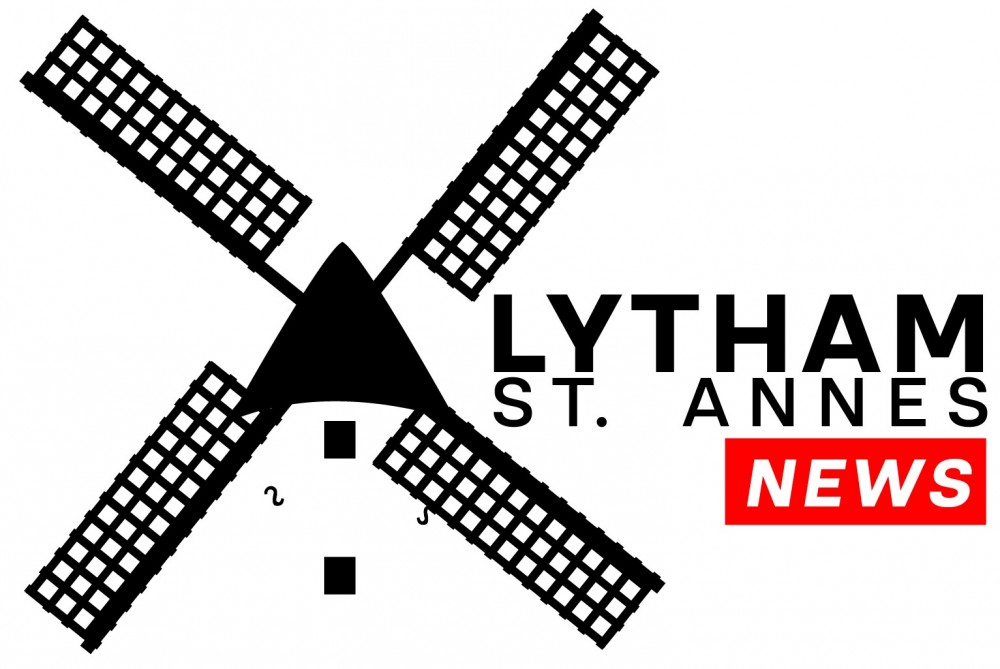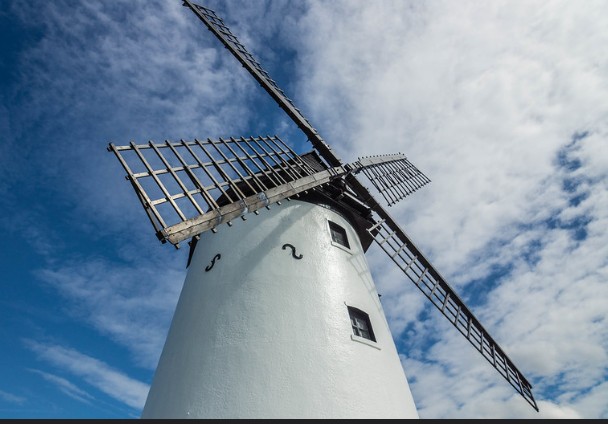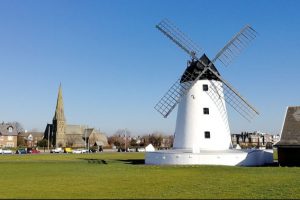The iconic Lytham Windmill will be getting its brand-new sails tomorrow (Thursday 28th April) just in time for summer.
Veteran millwright Joe Gillet and his team in Wesham have been using their expert skills to transform carefully selected Douglas-Fir timber, sourced from the Pacific coast of the USA, into a new set of four sails. Douglas-Fir wood was chosen as it is renowned for its incredible strength, workability and hard, abrasion resistant composition
Joe’s experienced Wesham team have previously worked on the windmill sails but have never been tasked to construct a full new set. Approximately a ton of Douglas-Fir wood is needed for each tapered sail.
Our windmill is of the type known as a tower mill and was designed for grinding wheat and oats to make flour or bran. Since commercial milling on the site ceased in 1921 the mill has belonged to the town and is operated by Fylde Borough Council, who open it to the public during the summer. The mill also contains a museum run by the Lytham Heritage Trust which explains the history and practice of flour milling.
The mill was built on Lytham marshes around 1805 on land leased by the local landowner and squire to miller Richard Cookson. Some of the mill’s machinery, including a 150-year-old mainshaft of Baltic oak, was salvaged from other local mills. The plinth which now surrounds the mill was added later for safety reasons. The original smoky drying kiln, once adjacent to the mill, was moved to Kiln Street after pressure from well-to-do local residents in the growing town. The surrounding land was later levelled and grassed to form a ribbon green between the houses and the sea, in the middle of which stands the mill.
In 1919 a high wind overcame the mill’s braking mechanism and the sails spun out of control, causing the mill to be burnt out. Two years later the squire, John T. Clifton, donated the gutted building to the town. The shell was restored, given a new cap, a set of mock sails and used variously as a cafe, as headquarters of Lytham Cruising Club, Motorboat Club and Sea Cadets and even as an Electricity Board sub-station.
In 1951 the mill was designated a grade II listed building. In 1989 it was totally restored by Fylde Borough Council and opened to the public.



















